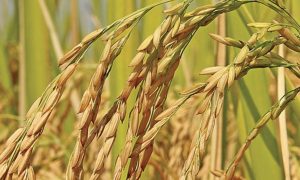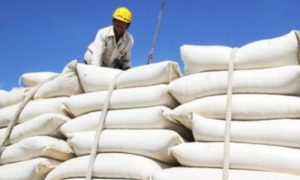France sees fall in winter wheat and barley sowing after rain

France is expected to see a sharp fall in the sowing of winter cereals after heavy rain disrupted field work in the European Union’s largest grain producer, the farm ministry said on Tuesday.
However, the area cultivated with winter rapeseed, France’s main oilseed crop, was seen holding steady as sowing took place before the wet weather arrived, the ministry said in a crop report.
Torrential rain during autumn in France has become a concern for the grain market as it threatens to stop farmers completing planting plans and to reduce yield potential for drilled crops.
In its first sowing estimates for next year’s harvest, the ministry projected the country’s area sown with soft wheat for the 2024 harvest at 4.49 million hectares, down 5.1% from the area harvested this year and a four-year low for sowing.
The winter barley area was pegged at 1.31 million hectares, down 4.0%, though that would be 3.1% above the average of the past five years.
For durum wheat, the variety used in pasta, the winter crop planted area was projected at 205,000 hectares, down 10.5% from this year’s harvest and 15.7% below the five-year average.
“The abundant rain recorded since mid-October across the country has prevented field work and could lead to sowing being postponed to spring,” the ministry said in a report.
Wheat is almost exclusively a winter crop in France whereas barley production includes a large amount of spring crop.
Durum wheat has been lagging furthest behind in planting progress among major cereal crops, according to data from farm office FranceAgriMer.
The winter rapeseed area for 2024 was estimated to be up 0.5% versus this year’s harvest at 1.35 million hectares. Rapeseed is sown earlier than cereals in late summer.
In revisions to production estimates for this year’s harvest, the ministry pegged the grain maize crop at 12.78 million metric tons against 12.49 million projected last month.
The estimate was now 16.1% above last year’s drought-hit maize crop but still below the five-year average.
For sugar beet, estimated 2023 production was revised up to 31.53 million tons from 31.28 million to put it marginally above last year’s level.














